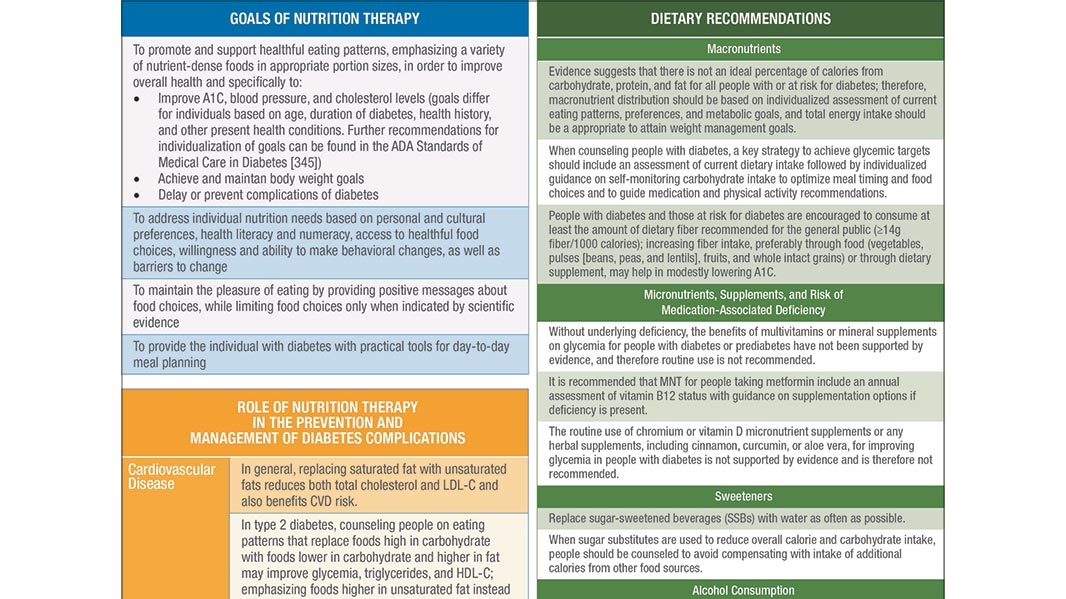
Understanding Medical Nutrition Therapy
Medical Nutrition Therapy (MNT) is a comprehensive, evidence-based approach designed to help manage chronic conditions like diabetes, heart disease, cancer, kidney disease, and digestive issues, while meeting individuals’ nutritional needs. This therapy involves assessment, nutrition counseling, and follow-up visits with a registered dietitian. The primary goal of MNT is to improve symptoms, prevent further complications, enhance overall well-being, and manage weight. Though MNT is an effective management tool, it is meant to complement the advice given by other healthcare professionals and not replace a doctor’s recommendations for treatment or medication.
The Importance of a Balanced Diet
When it comes to managing diabetes and prediabetes, maintaining a balanced diet is crucial. This includes a suitable intake of carbohydrates, proteins, and fats, which play a significant role in managing blood sugar levels. Consuming non-starchy vegetables, fruits, proteins, starchy vegetables, whole grains, and nuts can help control diabetes and prediabetes. Additionally, avoiding artificial sweeteners, added sugars, and understanding the impact of skipping breakfast on glycemic variability is also important.
Weight Management and Physical Activity
Weight management and physical activity are two vital components in controlling diabetes and prediabetes. Overweight or obesity commonly occur alongside type 2 diabetes. In Canada, two-thirds of all adults are overweight or obese, making overweight and obesity the most common chronic conditions in the country. Therefore, a healthy diet, coupled with regular physical activity, can help manage weight and, subsequently, control diabetes and prediabetes.
The Potential of Time-Restricted Eating
Time-restricted eating (TRE), a form of intermittent fasting, has shown potential in improving weight and glycemic control in adults with type 1 diabetes (T1DM) who are overweight or obese. The prevalence of obesity in T1DM patients has highlighted the metabolic benefits of TRE in adults with obesity and prediabetes. Various fasting protocols have shown efficacy and safety in T1DM. Evidence suggests that intermittent fasting may help T1DM patients lower body weight and possibly HbA1c with minimal risk of DKA or severe glycemic disturbances.
Nutrition and Diabetes Management
The relationship between nutrition and diabetes management is clear. A balanced diet and healthy lifestyle choices, including regular physical activity and weight management, can significantly improve the quality of life for individuals with diabetes or prediabetes. Medical nutrition therapy serves as a versatile tool in this management process, providing a comprehensive plan tailored to each individual’s needs. It is essential to remember that while MNT can be beneficial, it should be used in conjunction with, not as a replacement for, medical treatment and advice from healthcare professionals.
